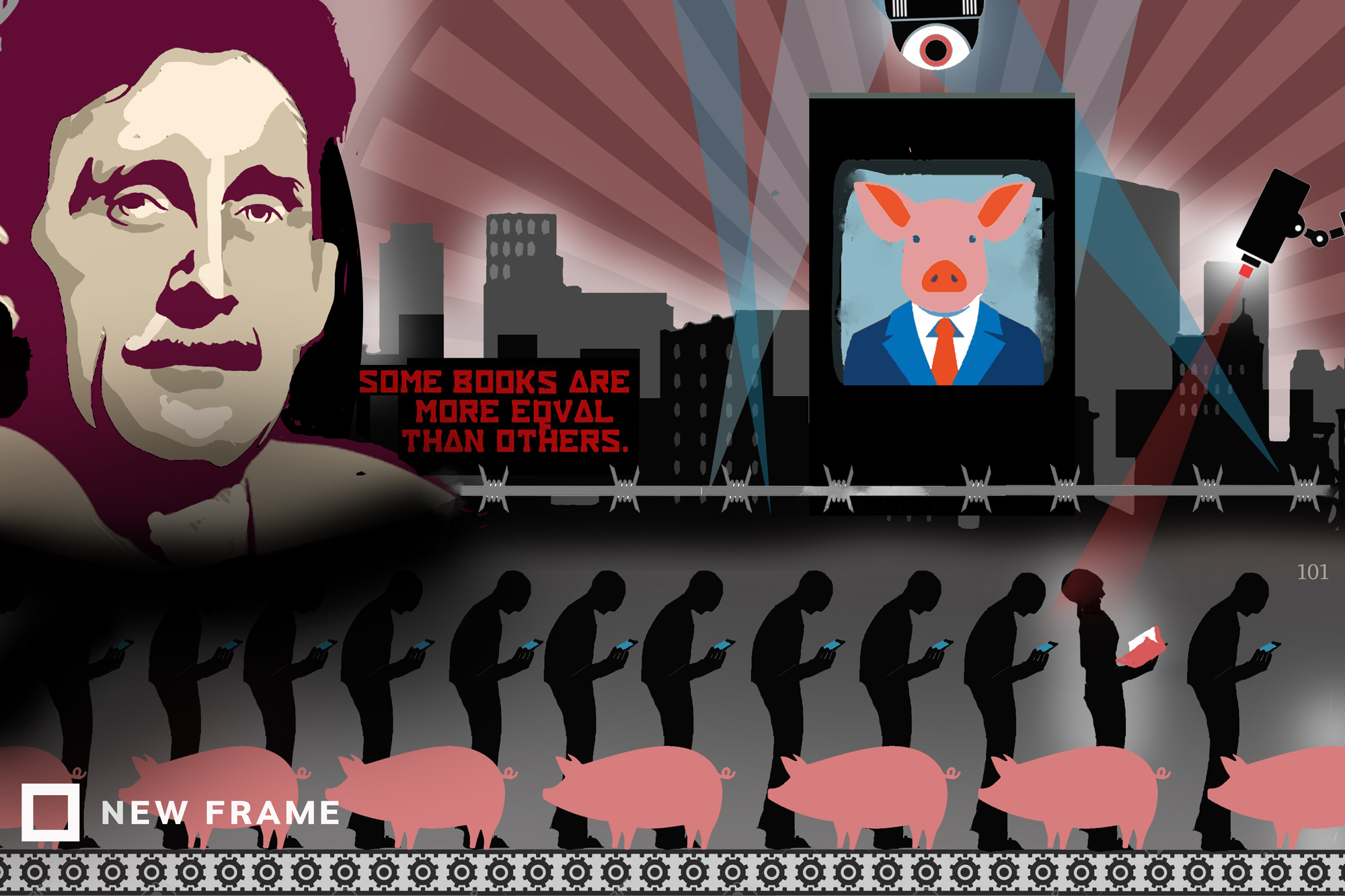Text Messages | The brevity of Orwell
George Orwell opposed hypocrisy in language, euphemism, abstractions and jargon, aiming to write concrete language that suggests accurate images to the reader.
Author:
10 September 2020

As significant anniversaries go, it slipped past quietly, a few notches above “unnoticed”. What might account for that was the virus ravaging the globe, the elected leaders of the United States and the United Kingdom wilfully destroying the workings of their democracies and the supremo of China perpetrating millions of human rights abuses.
George Orwell’s Animal Farm turned 75 on 17 August. Its initial publication came just months after the end of World War II in Europe and days after the war ending in Japan and the Far East. Shortages of paper in Britain meant that a first edition of only 4 500 copies was printed, which sold out within days. Restrictions on paper use continued and meant that “25 500 copies had been issued by the time Orwell died in January 1950, and 590 000 in America”, writes Peter Davison in the introductory note to the Penguin edition of 1989.
Sales of the book are now in the millions. It has been translated into dozens of languages; even before Orwell died it had versions in the main European languages as well as others as varied as Telugu, Icelandic and Persian. As with so much of what Orwell thought and invented – including Big Brother, Newspeak, Room 101 – Animal Farm is a universal shorthand, in this instance for the overthrow of a noble ideal and a reversion to inequality, exploitation and barbarism.
Related article:
Look around the world and many polities show themselves weighed down by the same oppressive governing class that Orwell depicts. Hypocrisy, lies and murder underpin them, just as those function to control first Animal Farm and then The Manor Farm, the name to which it reverts. Seventy-five years on, Orwell’s foresight is proven. So too are his many other virtues, such as clear thinking and even clearer writing.
Enduringly famous as are Animal Farm and 1984, it is arguable that much of Orwell’s best writing is in his journalism, essays and memoirs of the Spanish Civil War, the last brought together in Homage to Catalonia. The essays show lucid thought that is easy to understand from the words on the page.
Not for Orwell the tortured, paragraph-long sentence so loved by academe, stuffed with every available punctuation mark to separate secondary ideas, branching thoughts, tangential observations, post-thought thoughts and cherished conceits. Not for Orwell the endless noun-strings of bureaucrat-speak, devoid of active voice and often devoid of verbs altogether.
Concrete vs abstract
Orwell opposed hypocrisy in language, euphemism, abstractions and jargon. He aimed to write concrete language that would suggest accurate images to the reader. Probably his most famous example of the concrete versus the abstract is in his essay Politics and the English Language (1946).
“I am going to translate a passage of good English into modern English of the worst sort. Here is a well-known verse from Ecclesiastes:
I returned and saw under the sun, that the race is not to the swift, nor the battle to the strong, neither yet bread to the wise, nor yet riches to men of understanding, nor yet favour to men of skill; but time and chance happeneth to them all.
Here it is in modern English:
Objective considerations of contemporary phenomena compels the conclusion that success or failure in competitive activities exhibits no tendency to be commensurate with innate capacity, but that a considerable element of the unpredictable must be taken into account.
This is a parody, but not a very gross one … The whole tendency of modern prose is away from concreteness.”
Related article:
The impenetrable translation is prose of exactly the type that fills countless academic journals and books, the budget reviews of treasury departments around the world, the business prospectuses of companies who do not want prospective clients to understand to what it is they are committing themselves. They are crimes against humanity because they obscure and mislead and, in some cases, are capable of killing or disguising murder. On the last, Orwell points out elsewhere in the essay:
“Defenceless villages are bombarded from the air, the inhabitants driven out into the countryside, the cattle machine-gunned, the huts set on fire with incendiary bullets: this is called pacification.”
Orwell enlarges the theme in The Prevention of Literature (1945-6), where he notes:
“What is really at issue is the right to report contemporary events truthfully, or as truthfully as is consistent with the ignorance, bias and self-deception from which every observer necessarily suffers. In saying this I may seem to be saying that straightforward ‘reportage’ is the only branch of literature that matters: but I will try to show later that at every literary level, and probably in every one of the arts, the same issues arise in more or less subtilised forms.”
Orwell adopted homelessness and embraced vagabondism and from those wrote Down and Out in Paris and London (1933). He fought on the Republican side in the Spanish Civil War. As a man of both mind and matter, word and deed, contemplation and action, the following withering view of the English left-wing intelligentsia is cautionary indeed: “Another marked characteristic is the emotional shallowness of people who live in a world of ideas and have little contact with physical reality.”
Be concrete, not abstract – Orwell’s lesson and gift to the world.


